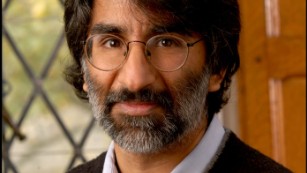As far as the United States Constitution, pay particular attention to U.S. Constitution - Article 1 Section 8
- The Congress shall have Power ... To make ALL Laws which shall be necessary and proper for carrying into Execution the foregoing Powers,
and ALL other Powers vested by this Constitution in the Government of the United States, or in any Department or Officer thereof.
- Each House shall be the Judge of the Elections, Returns and Qualifications of its own Members, ...
 Akhil Reed Amar, author of CNN's Why Ted Cruz is eligible to be president wrote:
Akhil Reed Amar, author of CNN's Why Ted Cruz is eligible to be president wrote:- " ... The Constitution's 12th Amendment clearly says
- that Congress counts the electoral votes at a special session;
and thus Congress is constitutionally authorized to refuse to count any electoral votes
that Congress considers invalid.
Elsewhere, Article I, section 5 of the Constitution makes clear
- that each house of Congress may "judge" whether a would-be member of that house
- meets the constitutional eligibility rules for that house.
He wins election in his home state.
But the Constitution says a senator must be 30 years old.
If a dispute arises about Smith's age, about whether there a proper birth certificate and what it says,
the Constitution clearly says the Senate is "the judge" of Smith's birth certificate dispute.
Similarly, for presidential elections the Constitution's structure makes Congress the judge of any birth certificate dispute
- or any other issue of presidential eligibility.
- but it is the judge of the eligibility rules prescribed in the Constitution.
Thus, ordinary courts should butt out, now and forever.
They have no proper role here, because the Constitution itself makes Congress the special judge.
In legal jargon, the issue is a "nonjusticiable political question."
- Legal questions are deemed to be justiciable, while political questions are nonjusticiable.[Huhn, Wilson R. American Constitutional Law Volume 1. 2016.]
One scholar explained:
- The political question doctrine holds
- that some questions, in their nature, are fundamentally political, and not legal,
and if a question is fundamentally political ... then the court will refuse to hear that case. It will claim that it doesn't have jurisdiction.
And it will leave that question to some other aspect of the political process to settle out.
- - - John E. Finn, professor of government, 2006[2]
In the typical case where there is a finding of nonjusticiability due to the political question doctrine,
- the issue presented before the court is usually so specific
that the Constitution gives ALL power to one of the coordinate political branches,
or at the opposite end of the spectrum, the issue presented is so vague
- that the United States Constitution does not even consider it.
The Constitution dictates the different legal responsibilities of each respective branch of government.
If there is an issue where the court does not have the Constitution as a guide, there are no legal criteria to use.
When there are no specific constitutional duties involved, the issue is to be decided through the democratic process.
The court will not engage in political disputes.
A constitutional dispute that requires knowledge
- of a non-legal character
or the use of techniques not suitable for a court or explicitly assigned by the Constitution to the U.S. Congress, or the President of the United States,
Now, let's take a close look at the word "NATURALIZATION", its history, and FROM WHERE it was derived .
What is the root word of "Naturalization" ? Not only could the Founding Father define "natural born citizen", BUT ... THE FOUNDING FATHERS DID DEFINE IT !
The Naturalization Act of 1790, let's read it !
Be it enacted by the Senate and House of Representatives of the United States of America, in Congress assembled,
- That any Alien being a free white person,
- who shall have resided within the limits and under the jurisdiction of the United States for the term of two years,
- wherein he shall have resided for the term of one year at least,
- he is a person of good character,
and taking the oath or affirmation prescribed by law
- to support the Constitution of the United States,
and the Clerk of such Court shall record such Application, and the proceedings thereon;
and thereupon such person shall be considered as a Citizen of the United States.
And the children of such person so naturalized,
- dwelling within the United States,
being under the age of twenty one years at the time of such naturalization,
And the children of citizens of the United States that may be born beyond Sea, or out of the limits of the United States,
- shall be considered as natural born Citizens:
- the right of citizenship shall not descend to persons whose fathers have never been resident in the United States:
- no person heretofore proscribed by any States, shall be admitted a citizen as aforesaid,
- except by an Act of the Legislature of the State in which such person was proscribed.
Take a look at the original one WRITTEN BY our FOUNDING FATHERS,
and VERIFY IT FOR YOURSELF in the list of NAMES of the members of our FIRST CONGRESS !
1st United States Congress, 21-26 Senators and 59-65 Representatives